Sanitation Workers on Biomedical Waste: Photo Story
'The most we receive are promises and advice'
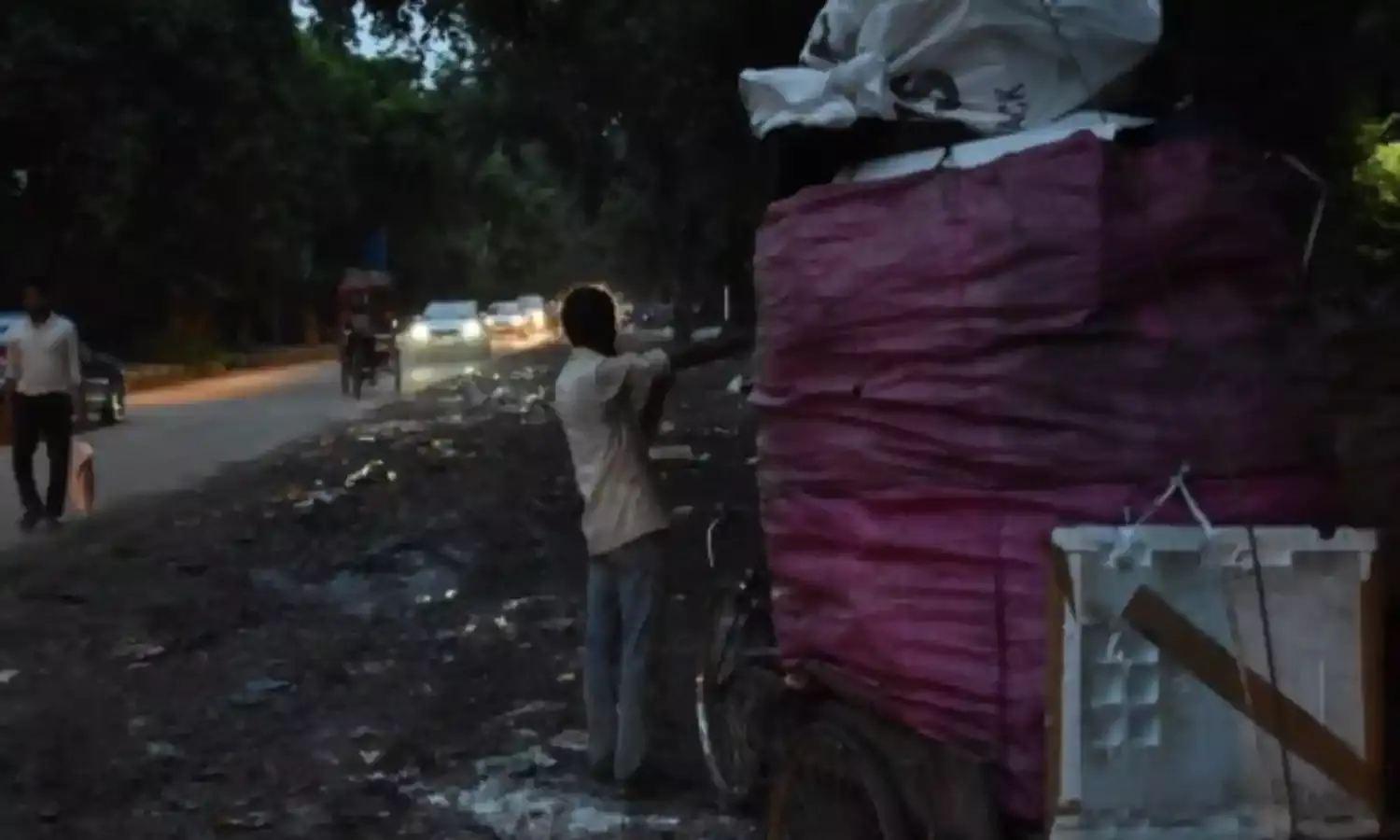
Sonu*, 40 years old, has been cleaning the streets of Delhi in the early morning hours for the last 25 years. “I often find used gloves, masks, tissues, sanitary napkins, diapers, among many other such dirty things” in the waste. A contractual sweeper for the North Delhi Municipal Corporation, a pair of ragged rubber gloves is all he has for his own safety.
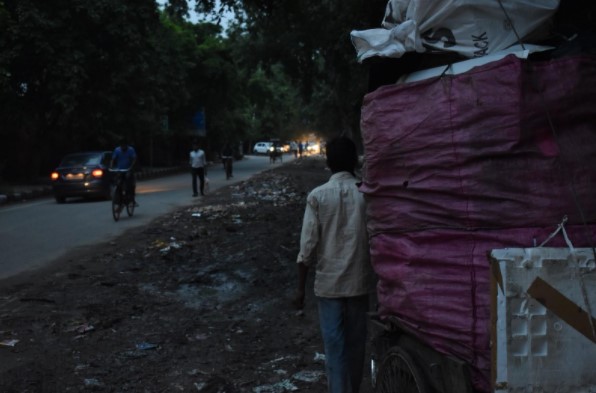
The World Health Organisation defines biomedical waste as any kind of waste produced during the diagnosis, treatment or immunisation of humans or during animal research activities. Usually associated with healthcare facilities, about 85% of such waste is usually non-hazardous. The remaining 15% may be infectious, toxic or radioactive.
With estimates running as high as 5 million covid deaths since the pandemic began, and many more excess deaths due to denial of care in under-resourced medical facilities, India is perhaps the worst-hit country in the world since it reported its first case in January 2020.
“People are irresponsible, the covid scare is no more,” says Sonu. He says all precautionary measures now lie in the dust as people still throw used masks and gloves while travelling. “Nobody even bothers to wrap it in a plastic bag.”
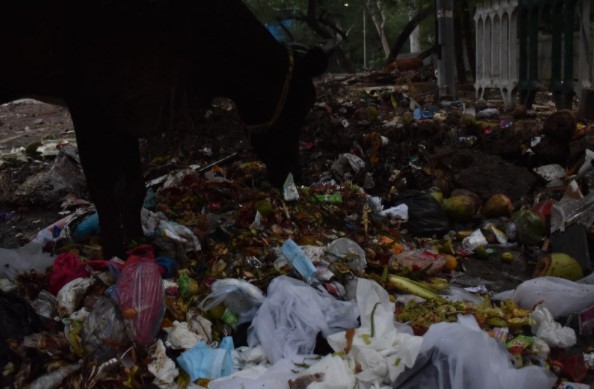
The pandemic has seen a surge in the production and use of medical supplies. According to data from the Central Pollution Control Board, as the second wave got underway in May last year, people in Delhi alone were generating 18.8 tonnes of covid-related biomedical waste every single day.
Like the official death toll, such data likely underestimates the scope of the problem, as it relies on information collected apps catering to treatment facilities. Households generating such waste do not show up in the data.
Many sanitation workers make the same observation. A garbage collector for Delhi Municipal Solid Waste Solutions Limited, a waste management company, 28-year-old Rajesh* says his job often forces him to dispose of non-segregated household waste. “I have even found used PPE kits in trash bins.”
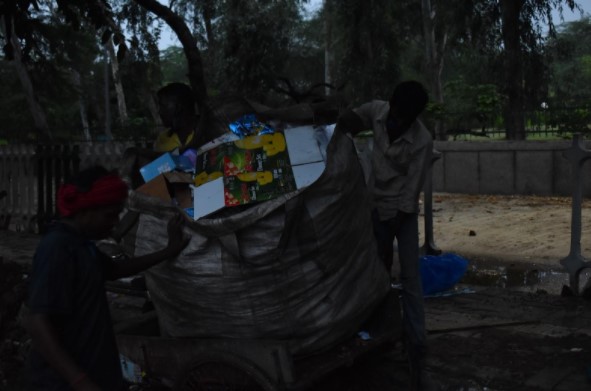
Rajesh and a driver transport the rubbish using an NDMC truck, as the private company has been contracted to work by the public body. He says he and the driver cater to around seven urban blocks comprising “thousands of households”, and have even collected waste from homes with active cases.
“We are accountable to both NDMC and our company,” Rajesh explains. He says the company provides its workers with masks, gloves and other safety equipment only on occasions of supervised checking. In Sonu’s case, the NDMC provided gloves and masks only during the first wave in early 2020. “I have been using my own mask ever since,” he laughs.
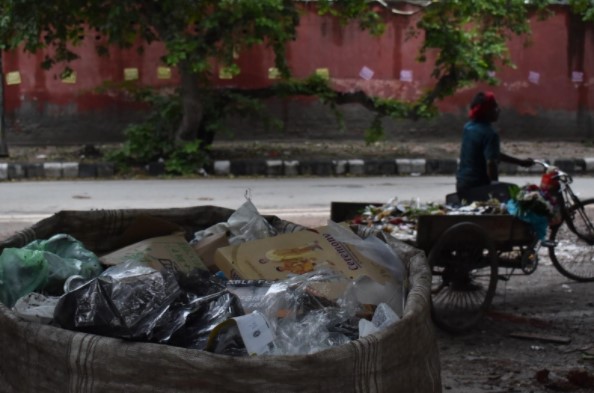
“Municipalities are hardly aware of biomedical waste,” says Priti Mahesh, associated with the environmental NGO, Toxics Link. She says waste segregation at the household level too has always been a problem, and people are usually unaware about biomedical waste and its hazards.
While India has had rules for biomedical waste management since 1998, which were amended for ease in 2016, household BMW remains unregulated. The rules apply only to medical institutions, which are required to tie up with facilities specialising in its disposal. The capital boasts of two such setups, according to Mahesh, and the lakhs of smaller clinics often escape supervision.
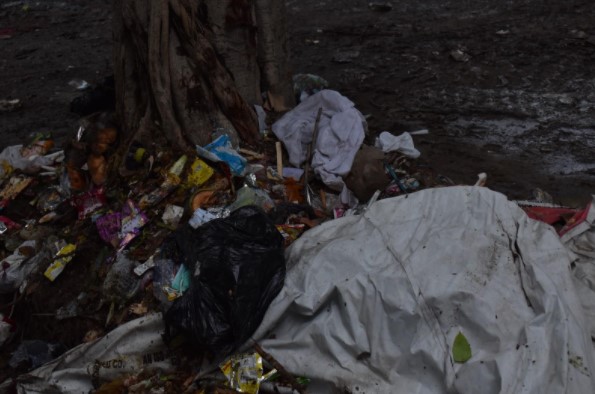
The Solid Waste Management Rules, 2016 make it the shared responsibility of urban local bodies and waste generators to segregate their garbage. Both are required to segregate waste into wet (biodegradable), dry (non-biodegradable) and domestic hazardous waste (diapers, napkins etc).
While wet and dry waste may be segregated, hazardous waste remains a problem. “We use a designated bin for collection of hazardous wastes which is disposed of once it gets filled,” says Mr Virendra, a supervisor at DMSWSL. He says that biomedical waste may often get mixed with dry waste, since bins for BMW are not available at all open dumping sites.
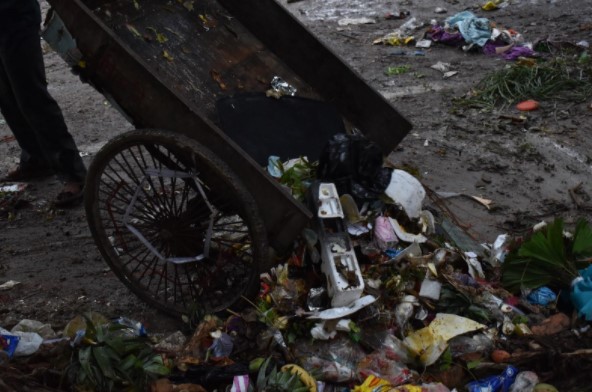
The latest CPCB guidelines published in July 2020 ask covid waste generators to dispose of such waste in yellow non-chlorinated bags to be provided by urban local bodies. Masks and gloves, the guidelines go, must be stored in a paper bag for 72 hours before being shredded and disposed of.
“Two of my colleagues tested covid positive,” says Rajesh. He states that when such difficult situations occur in their hazardous workspace, their employers provide them no medical help. “I have a family to look after: if something were to happen to me, what would they do?” Sonu and Rajesh both describe their management workers as unempathetic. “We do our duties in difficult conditions, yet the most we receive are promises and advice to maintain distancing,” says Rajesh.
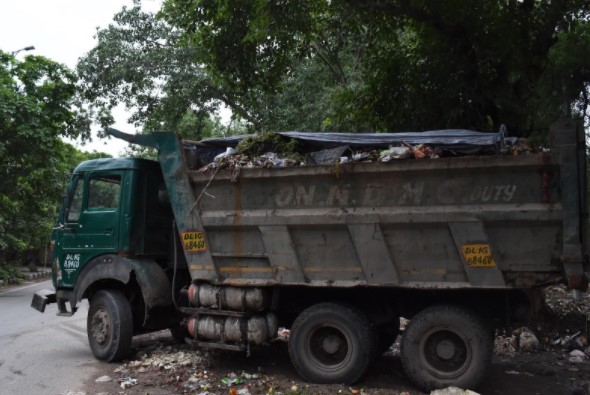
“Where is bio medical waste?” asks Mr Satyavan, a sanitary inspector with the NDMC. Asked if the segregation required by the Solid Waste Management Rules is being implemented, he says the appropriate bins are placed at all dumping sites. I saw none while I was on the ground.
According to Mr Satyavan, all waste collectors are advised to wear masks and gloves, and if found violating the rules they can be penalised. He says that since workers like Rajesh* are employed by DMSWSL, the civic body has no responsibility towards them.
“If a worker tests positive or is in bad health, we help them by sanctioning appropriate holidays and getting them admitted in hospitals,” he claims. He claims that various awareness campaigns have also been initiated to help the workers.
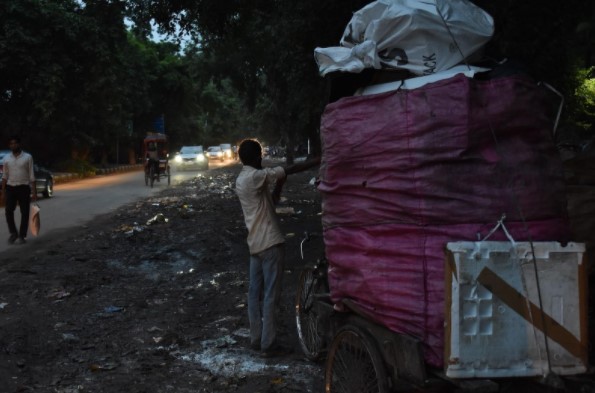
*Names changed to protect identity



